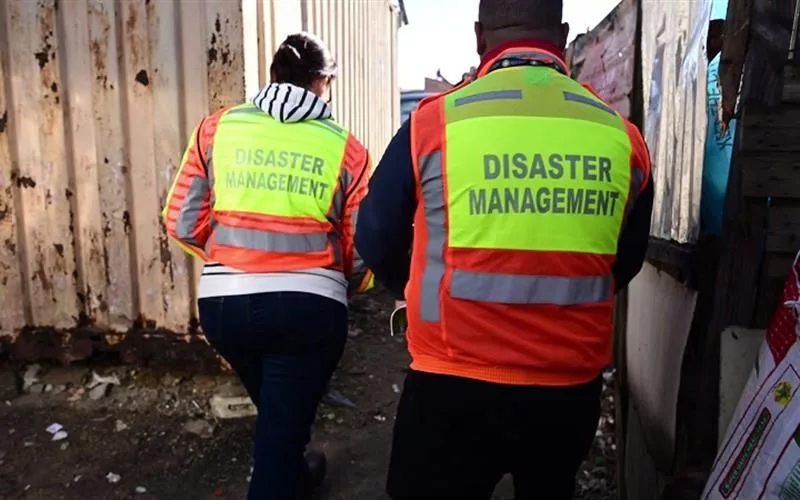The Food and Beverages Graduation ceremony in Mbombela celebrates the success of 81 graduates in the training program, marking the start of their bright and promising future. The joint endeavor by diverse stakeholders has proven pivotal to tackling the skills deficit in the hospitality and food and beverages domains. Education is a vital component of national development strategy, generating jobs, enhancing health facilities, and meeting other necessities. The Tourism Sector Recovery Plan aims to ensure long-term sustainability in collaboration with its stakeholders.
Milestones and Commencement of Promising Journeys
The Food and Beverages Graduation ceremony in Mbombela celebrates the success of 81 graduates in the training program. The event marks not just the end of an educational journey, but also the start of a bright and promising future. This joint endeavor by diverse stakeholders has proven pivotal to tackling the skills deficit in the hospitality and food and beverages domains.
Bursting with anticipation and excitement, the lush subtropical city of Mbombela sets the stage for an inspiring event. The Food and Beverages Graduation ceremony, officiated by Deputy Minister Fish Mahlalela, marks a significant milestone for 81 graduates. As they receive their competency certificates, they celebrate their success in the training program and prepare to embark on their future journeys.
Milestones and Commencement of Promising Journeys
The act of graduation is not just the end of an educational journey, but also the start of a bright and promising future. It is a moment of joy and celebration, recognizing personal achievements and milestones. These graduates, perched on the brink of a new life phase, are primed to create a prosperous future for themselves and their loved ones.
This remarkable event showcases the fruit of collaboration between diverse stakeholders, including MMC Business Solutions and host employers. Their unwavering support has proven pivotal to the success of this program. This joint endeavor mirrors our collective objective of tackling the skills deficit in the tourism sector, especially within the hospitality and food and beverages domains.
Education: The Tool for Social and Economic Advancement
Over the past three decades, concerted efforts have been made to restore social and economic justice, addressing the remnants of systemic inequality and displacement. Education forms the key pillar of this restoration process, used as a strategic tool to generate employment, alleviate poverty, and promote equality – a stark deviation from its past misuse to propagate inequality.
Significant progress has been made in enhancing the education system. The matric pass rate, at a record high of 82.9%, stands as evidence of this progress. Additionally, learners from no-fee schools increasingly contribute to a larger portion of bachelor passes, and dropout rates are gradually decreasing.
Government’s drive to stimulate economic growth and transformation has fueled investment in education. The aim is to generate job opportunities and entrepreneurial ventures for young adults, many of whom are burdened by unemployment and restricted access to funding.
Skill Revolution in the Tourism Sector
The democratic era of the past 30 years has been focused on eliminating the remnants of apartheid and colonialism, addressing the trinity of poverty, inequality, and unemployment. Skill revolution programs have been launched to equip South Africans with necessary knowledge and skills to participate in socioeconomic activities.
The Food and Beverage Training Programme in Mpumalanga Province exemplifies such an intervention. This initiative, established through the Tourism Sector Human Resource Development Strategy, owes its success to the partnership between the Department, MMC Business Solutions, and the Culture, Arts, Tourism, Hospitality and Sports Sector Education and Training Authority (CATHSSETA).
Shaping the Future of Tourism
The tourism sector, a rapidly evolving industry, has a significant role in South Africa’s economy. Over the years, it has witnessed considerable growth and diversification. To ensure its sustained growth, it’s imperative to nurture a demand-led skill supply.
Tourism is not just a source of revenue, but a people-oriented industry that places individuals at the core of its brand. Skill development, therefore, is integral to its success, making it an essential driver for socioeconomic advancement. Recognized as a critical intervention area in the Economic Reconstruction and Recovery Plan, tourism is positioned to propel the country’s economic recovery.
In collaboration with its stakeholders, the Department of Tourism has formulated the Tourism Sector Recovery Plan. Focusing on protecting and rejuvenating supply, rekindling demand, and strengthening enabling capability, this plan aims to ensure long-term sustainability.
Looking Ahead
Education is undeniably a vital component of our national development strategy. In its absence, efforts to generate jobs, enhance health facilities, and meet other necessities cannot be sustained. The economy requires pertinent skills to stimulate growth. The Department of Tourism expresses gratitude to its partners for their unwavering dedication and commitment, which consistently surpass expectations.
As the event concludes, it’s evident that it’s more than just a celebration of present accomplishments. It is also an acknowledgement of the determination, diligence, and hard work invested by the graduates. Their journey is just beginning, and the future promises many more milestones for them to strive towards and conquer.
1. What is the Food and Beverages Graduation ceremony in Mbombela?
The Food and Beverages Graduation ceremony in Mbombela celebrates the success of 81 graduates in the training program, marking the start of their bright and promising future.
2. What is the significance of the Food and Beverages Graduation ceremony?
The event marks not just the end of an educational journey, but also the start of a bright and promising future. This joint endeavor by diverse stakeholders has proven pivotal to tackling the skills deficit in the hospitality and food and beverages domains.
3. Why is education important for national development strategy?
Education is a vital component of national development strategy, generating jobs, enhancing health facilities, and meeting other necessities. In its absence, efforts to generate jobs, enhance health facilities, and meet other necessities cannot be sustained.
4. What is the Tourism Sector Recovery Plan?
The Tourism Sector Recovery Plan aims to ensure long-term sustainability in collaboration with its stakeholders. Focusing on protecting and rejuvenating supply, rekindling demand, and strengthening enabling capability, this plan aims to ensure long-term sustainability.
5. What is the Food and Beverage Training Programme in Mpumalanga Province?
The Food and Beverage Training Programme in Mpumalanga Province is an intervention established through the Tourism Sector Human Resource Development Strategy to equip South Africans with necessary knowledge and skills to participate in socioeconomic activities.
6. Why is skill development integral to the success of the tourism industry?
Skill development is integral to the success of the tourism industry as it is a people-oriented industry that places individuals at the core of its brand. Skill development, therefore, is essential to its success, making it an essential driver for socioeconomic advancement.













